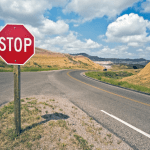Concert Review — Alison Krauss and Union Station
Alison Krauss & Union Station
Saturday, August 21
Au-Rene Theater, Broward Center for the Performing Arts
Fort Lauderdale Florida
If there’s anyone who doubts that Bluegrass is now mainstream, Alison Krauss & Union Station’s Saturday night show at the Au Rene Theater ought to have provided more than enough evidence to convince that it’s true. Playing a tight, well-conceived set certain to seduce both devotees and newcomers alike, Krauss and company proved that the emotional resonance that they generate boasts universal appeal that’s not confined to any particular genre. Whether it’s their up-tempo instrumental rambles or quiet, plaintive ballads, the sentiments always show through.
It was in fact heartening to see the band draw a packed house, further proof that South Florida is further becoming a beckoning locale for Americana music of all varieties. And given the stately setting of the lovely Au Rene Theater, there isn’t a better showcase for a band whose sophisticated style and populist approach have made them a top draw both here and abroad. While their 2007 collaboration with Robert Plant may have elevated their stature, it’s clear they don’t need another marquee name to define their direction. Consistently tight and cohesive, their strength is in their nimble playing and Krauss’ soaring vocals, and given the extra ingredient that Jerry Douglas’ remarkable dobro and lap steel add to the mix, they’re clearly one of the most adept outfits anywhere.
The other additive that the band takes full advantage of is their choice of tunes. The hits find a fit, specifically “Baby, Now That I’ve Found You” and “When You Say Nothing At All,” two tracks that helped them navigate the cross over divide early on. And by drawing liberally from their recent album, Paper Airplane, they seized on its most poignant perspectives, from the resilient title track. which defined the physical challenges that went into the album’s making, to its most heartbreaking ballads. Their take on Richard Thompson’s “Dimming of the Day” was especially affecting, and proved that if anyone could transcend the original, then indeed Krauss and her companions can clearly take the honors.
Inevitably though, one would be hard pressed to guess where they’re most effective. Their acoustic orientation provides a no frills execution, and while occasional keyboards and percussion were used to augment some songs, mostly it’s down to Krauss, Douglas, singer/guitarist/mandolin player Dan Tyminski, guitarist/banjo picker Ron Block and stand-up bass player/backing vocalist Barry Bales to maintain the momentum. Indeed, despite the inherent unplugged format, the energy and enthusiasm never waiver. Krauss and Tyminski maintain the pacing with a pluck of her bow and his rhythmic strumming, allowing Douglas and Block to soar above the fray. Tyminski also ups the ante on the vocal front, and when he takes the lead on more resolute material like “The Boy Who Wouldn’t Hoe Corn” and “Rain Please Go Away,” he adds an extra urgency and intensity to their back porch picking.
It’s also clear that years of working the road have made them exceedingly comfortable on stage. They spiced their performance with casual patter, full of inside jokes about life on the tour bus and favorite cereals from days gone by. Block seems a favorite foil; when Krauss remarked that fans frequently ask, “What’s up with you people and all those sad songs?” she replied, “It’s because we’re sad people.” Naturally, that drew a laugh, but then she directed her comments towards Block, insisting that he favors songs where people “get killed, get dumped or become the victims of pharmaceutical mishaps.” The hapless Block merely shrugged his shoulders and acknowledged his agreement.
Nevertheless, the band’s camaraderie is never more apparent than on their close knit harmonies and the intimate embrace with which they close the show, first with Tyminski and Block positioned shoulder to shoulder with Krauss on acoustic guitars, and then with Douglas and Bales framing her as a hushed ensemble, singing softly with gospel-like reverence. It was a particularly moving way to end the show and all the more impressive for their emotional elocution.
If Krauss and Union Station weren’t as exceptional, opening act Dawes might have stolen the show. Although they’re only two albums on in their still budding career, the band’s radiant Laurel Canyon-styled pastoral pop sound drew an enthusiastic response from the crowd, most of whom were likely previously unawares. Lacing their material with close-knit harmonies and sweet ‘70s sentiment, they brought to mind the Band, Jackson Browne and Crosby Stills and Nash in their retro references. “Million Dollar Bill” and “Moon in the Water,” both from their excellent new album Nothing Is Wrong, were especially enjoyable, and after Jerry Douglas joined them on their final two selections, it served to enforce the fact that sometimes, opening acts are all too abbreviated. When lead singer Taylor Goldsmith offered his hurrahs by thanking the crowd for coming early, there was mutual admiration in abundance.
— Lee Zimmerman




